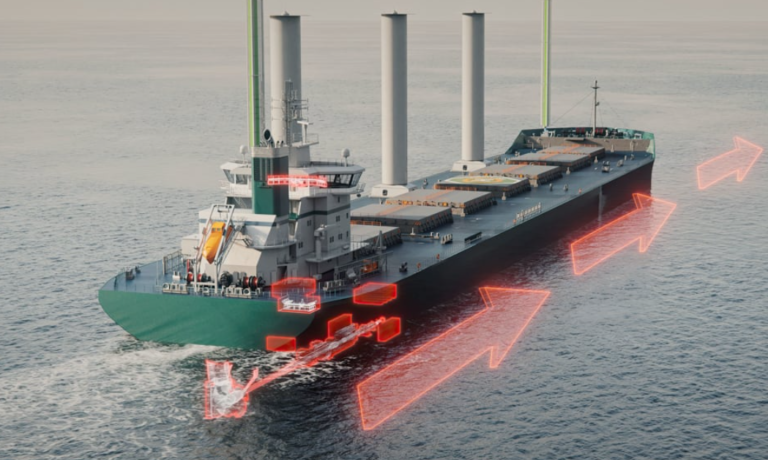Norway’s Kongsberg Maritime Launches K-Sail Service for Wind-Assist Technologies
Norway-headquartered marine technology player Kongsberg Maritime has introduced a new service aimed at assisting ship owners in selecting and implementing wind-assist technologies more effectively.
The newly unveiled service, named K-Sail, was developed to help vessel owners overcome challenges related to the adoption of wind-assist technology by focusing on integration and collaboration with technology partners.
K-Sail, a modular wind propulsion platform, is designed for both newbuilds and retrofits across various vessel segments such as bulk carriers, tankers, boxships, RoRo vessels, cruise ships, and large yachts.
The service integrates sail management, vessel automation, and route optimization into one ecosystem, providing operators with control over the entire wind-assisted performance, as explained by representatives from Kongsberg Maritime.
Henrik Alpo Sjöblom, Vice President Business Concepts at Kongsberg Maritime, highlighted the importance of integrating sails into a ship’s systems for successful utilization of wind-assist technology. He emphasized the need for ship owners to choose the most suitable wind-assisted technology that aligns with their operational requirements.
Danish tanker operator Terntank has collaborated with the K-Sail team on a pilot project, with the first wind-assisted tanker expected to achieve fuel savings of up to 15%. This collaboration underscores the potential for significant fuel consumption reduction and carbon emission cuts in the maritime industry.
Kongsberg and Terntank have a history of successful partnerships, with previous projects focusing on equipping chemical tankers with wind-assisted technology. The ongoing collaboration is poised to deliver innovative solutions for sustainable shipping practices.
Wind-assisted propulsion systems have gained traction in the maritime sector for their ability to contribute to decarbonization efforts. Retrofitting vessels with sails or wind-assist technologies can lead to substantial fuel savings and emissions reductions, ranging from 5% to 20% under optimal conditions.
Future of Wind-Assisted Propulsion in Norway
Norway, a key player in the maritime industry, has seen significant developments in wind-assisted propulsion technologies. Initiatives like the KSP WIND project, supported by the Research Council of Norway, aim to enable zero-emission shipping through wind-assist propulsion solutions for both retrofit and newbuild vessels. The project is expected to drive sustainable practices in the maritime sector until 2027.

